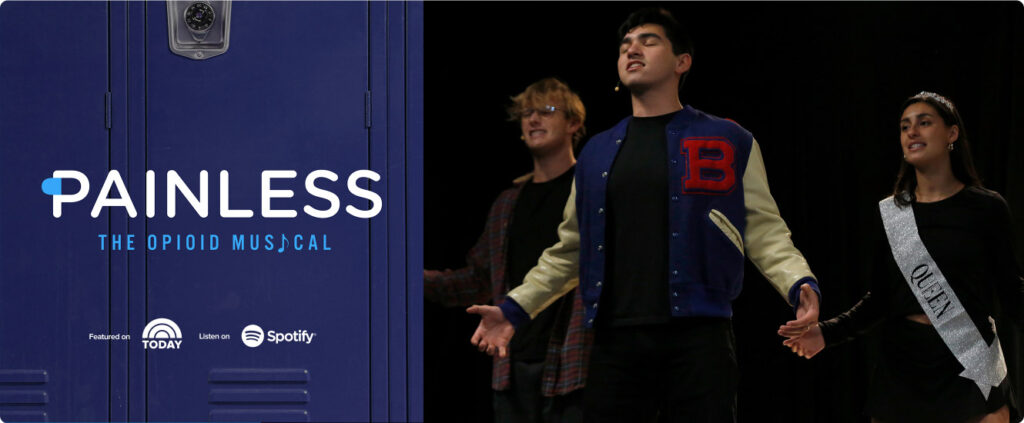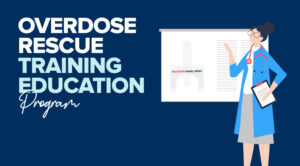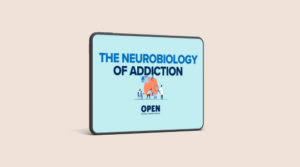Hello,
Happy summer 2025! We’re excited to connect with you and share the latest updates, helpful resources, and upcoming events designed to support your work and community.
Clinicians, do you wish there was a way to “phone a friend” and get advice on working with patients who are experiencing complex pain or living with a substance use disorder? OPEN provides FREE same-day clinician-to-clinician consultations to help navigate your questions. As one of the on-call addiction medicine providers, I truly enjoy partnering with clinicians to problem solve and share practical, evidence-based guidance.
Interested in chatting with me or one of my colleagues? Fill out the easy online form and an addiction medicine expert from our team will contact you the same day. We look forward to meeting with you soon!
Robert McMorrow, DO, FASM
OPEN On-Call Addiction Medicine Physician

Painless is now available for licensing! This is a no cost license; the musical can be performed solely for non-commercial purposes.
Materials available under the license include:
Thank you to everyone who made our Painless: The Opioid Musical tour in the Upper Peninsula a success! We have had such a magnificent response from students, teachers, and community members who saw the show live, and we are beyond grateful that we were able to visit this community and share this story.
“I sincerely appreciate the authenticity of your characters, as their stories ring so familiar to those that have been lost to or are still fighting this disease. Ten years ago, I would have never expected to lose family members to addiction, and now that all I have is the loss of those people and their stories to share; I see the immense value in destigmatizing and educating others on this topic. To paraphrase a line from the play, we cannot end all pain, but we can ease the suffering.” – High School Teacher

Knowing how to respond to an overdose is an important skill that could help you save a life. OPEN offers expert-led naloxone training to teach you everything you need to know to take action during a suspected overdose.
Watch this video to learn how addiction alters the brain and ways to treat through a multidisciplinary approach.
Answer your questions:

What if email reminders to surgeons could help them avoid overprescribing opioid pills after surgery and unwittingly contributing to the opioid epidemic?
Work completed by Dr. Jennifer Waljee and Dr. Chad Brummett was featured on RAND’s website! Read the full research summary and support their work.
In a new study conducted by RAND, Sutter Health, and several universities, surgeons who received email “nudges” to align their prescriptions with recommended amounts prescribed significantly less — and the reductions persisted for at least a year after the emails stopped. If widely adopted, this intervention could keep millions of opioid pills from being misused. This research brief describes the study’s findings and offers considerations for clinical leaders, hospital system administrators, and other stakeholders who might wish to use this intervention as a model in their own settings.
Read the full research summary here.
OPEN is excited to share the following message from the American Association for the Study of Liver Diseases (AASLD):
“On Friday, June 4th, AASLD issued a statement applauding Senators Bill Cassidy (R-LA) and Chris Van Hollen (D-MD) for their bipartisan leadership to eliminate hepatitis C via the Cure Hepatitis C Act of 2025. The elimination of viral hepatitis, including hepatitis C, is a top public health priority for AASLD.
“Despite the availability of a curative therapy for over 10 years, people are still dying from hepatitis C. We must seize this opportunity to get these effective therapies to those affected. I am confident that this legislation will facilitate that. AASLD stands ready to work with Senators Cassidy and Van Hollen to pass this legislation as quickly as possible to prevent more unnecessary deaths from this virus,” said AASLD President Grace Su, MD, FAASLD.
Please contact your senators today and ask them to cosponsor this legislation using our new AASLD Policy Action Center. Make your voice heard with just four clicks:
August 27, 2025
@12:00pm – 1:00 pm
1.0 CE Credit
CME, MCBAP, SW
Presenter:
Eliza Hutchinson, MD, FASM
Join us for an insightful webinar to provide a person-centered approach to identifying and supporting individuals with Substance Use Disorder (SUD). Participants will learn evidence-based screening methods, patient engagement strategies, and how to apply harm reduction principles within clinical practice. The session will also cover how to leverage psychosocial support services both within primary care settings and through community-based resources to improve patient outcomes and continuity of care.
September 8, 2025
@ 9:00am – 1:00pm
4.0 CME Credits pending
Presenters:
Chris Frank, MD, Ph.D.
Eliza Hutchinson, MD
Primary Care Providers (Physicians and Advanced Practice Professionals) who attend this MOUD training are eligible to receive a $250 incentive.
September 17, 2025
@12:00pm – 1:00pm
1.0 CE Credit
MCBAP
1.0 CE Credit Pending
CME, SW
Presenter:
Alex Elswick, Ph.D.
Join our upcoming webinar to explore the different types of stigma and their impact on recovery from substance use disorders. Discover how stigma affects self-worth and access to care, and gain practical strategies to address and reduce stigma in clinical, community, and personal settings.
September 22, 2025
@12:00pm – 1:00pm
1.0 CE Credit
MCBAP
1.0 CE Credit Pending
CME, SW
Presenters:
Sheba Sethi, MD
Melissa DeMarse, LPC, CAADC
This webinar will delve into the complex relationship between trauma and substance use disorders (SUDs). Participants will gain a deeper understanding of how traumatic experiences—especially in early life—can shape brain development, emotional regulation, and coping behaviors, increasing vulnerability to substance use. The session will also highlight the importance of trauma-informed approaches in both the prevention and treatment of SUDs.
October 14, 2025
@12:00pm – 1:00pm
1.0 CE Credit Pending
CME, MCBAP, SW
Presenter:
Jane Chargot, MD
Join us for an engaging webinar that explores the use of buprenorphine in primary care pain management. This session will review the fundamentals of buprenorphine, evaluate the latest evidence supporting its use, and delve into the complex overlap between chronic pain and substance use disorders. Through real-life case examples, you’ll gain practical insights to enhance patient care.
November 10, 2025
@8:00am – 12:00pm
4.0 CME Credits Pending
Presenters:
Sheba Sethi, MD
Eliza Hutchinson, MD, FASM
Primary Care Providers (Physicians and Advanced Practice Professionals) who attend this MOUD training are eligible to receive a $250 incentive.
Access literature with OPEN’s publication portfolio. We use evidence to inform public health policy and practice recommendations.
Prevention of hypotension after neuraxial anesthesia in nonobstetric surgery: a systematic review